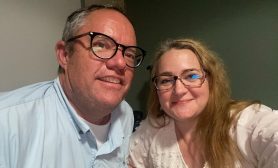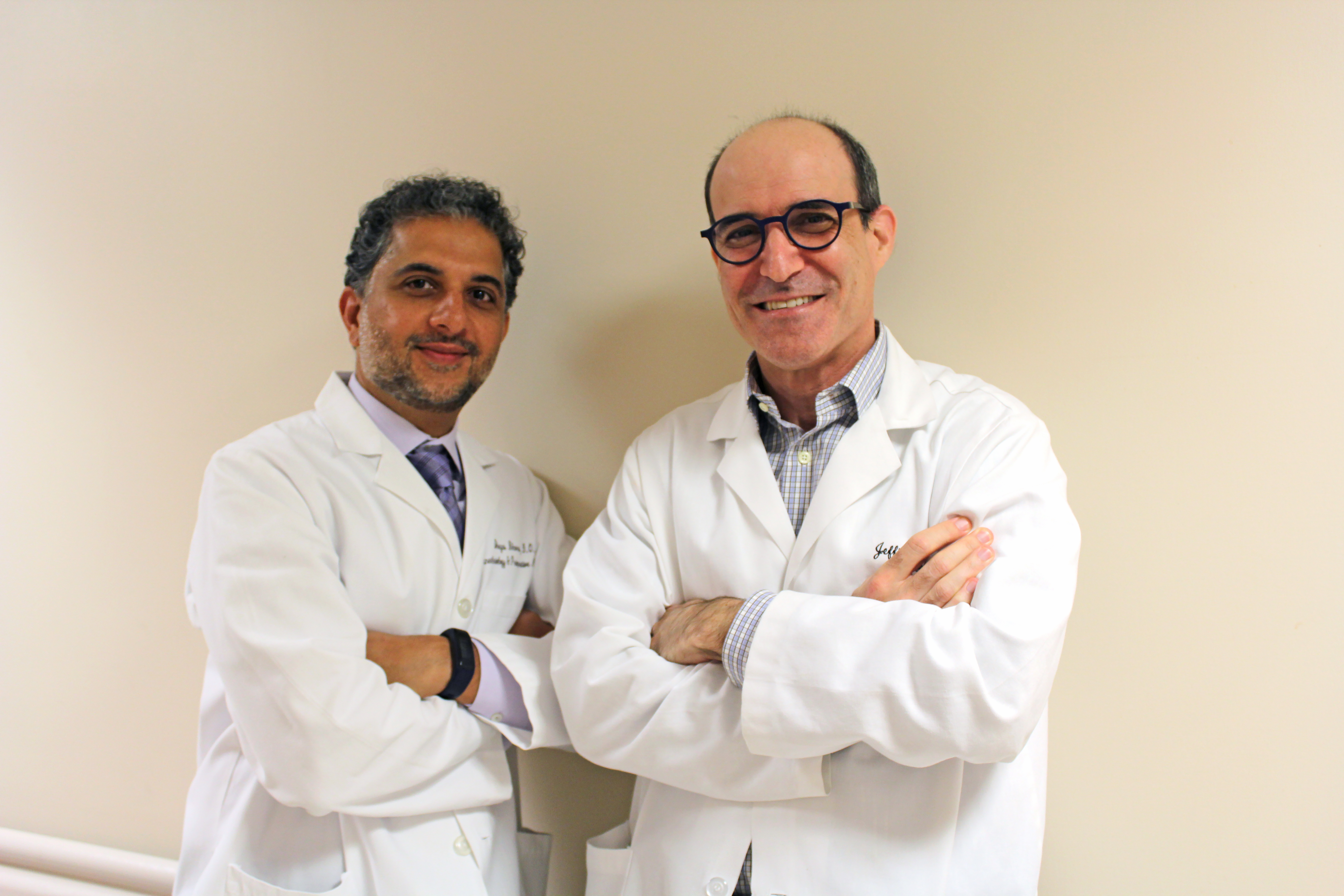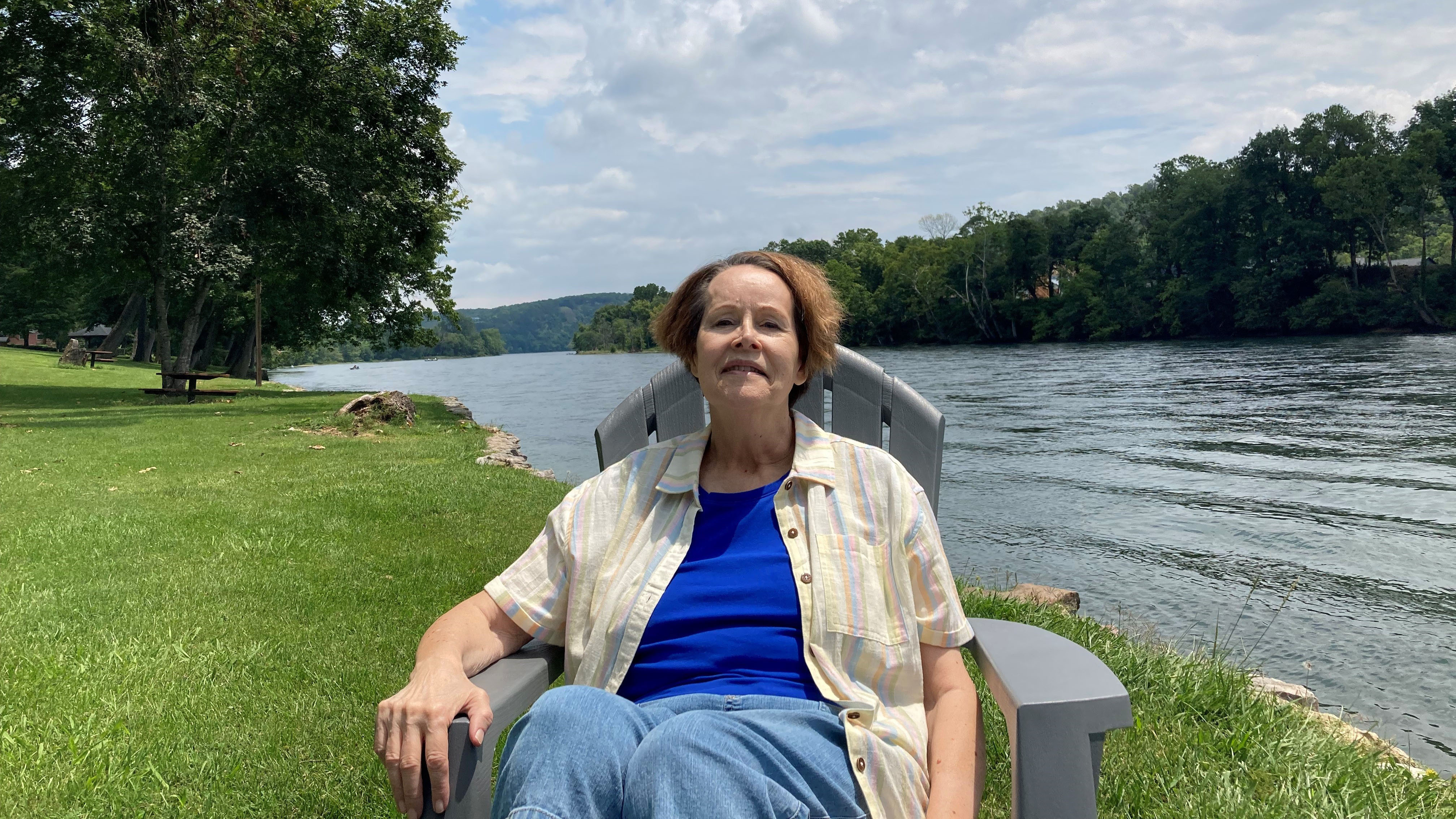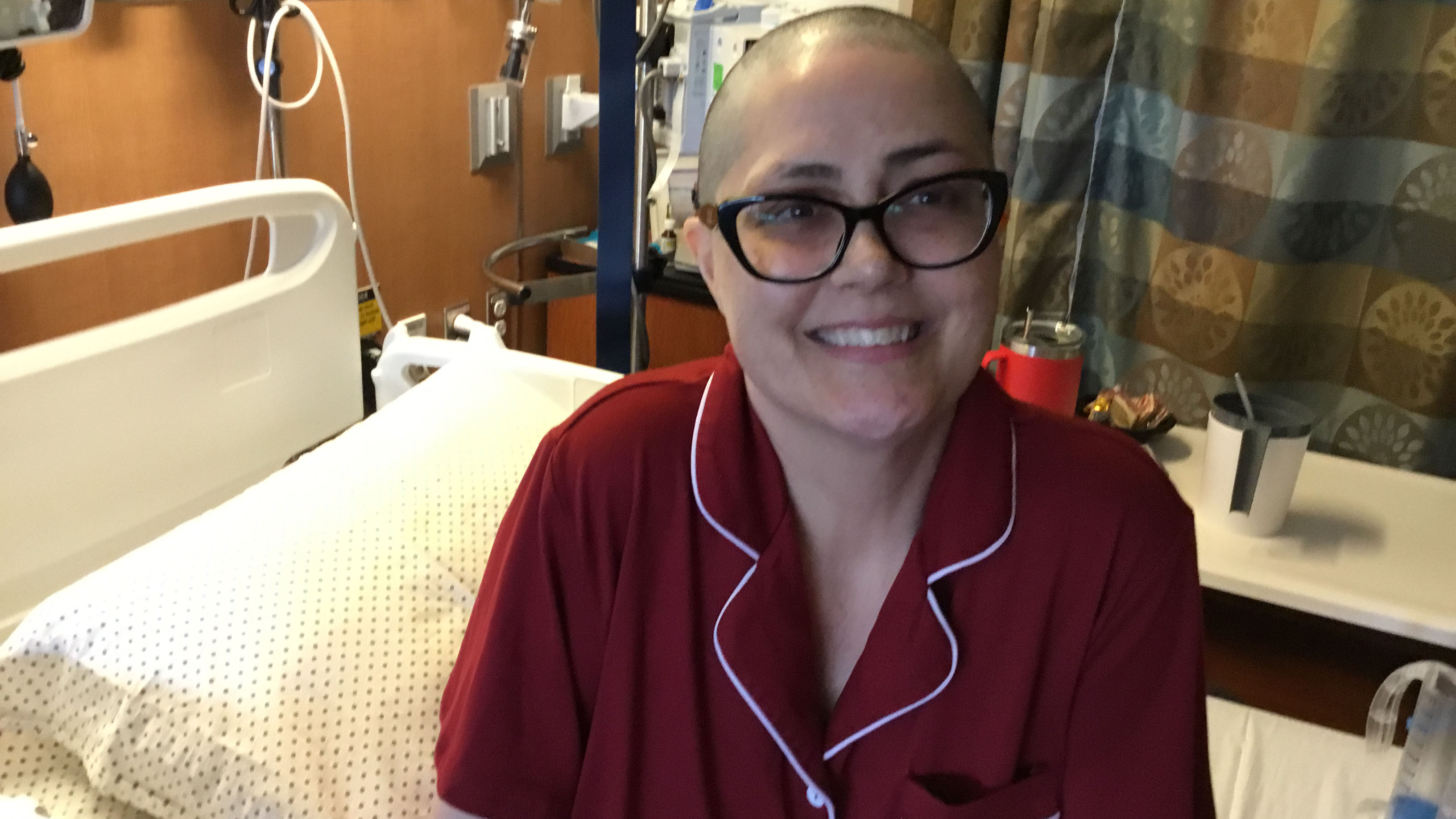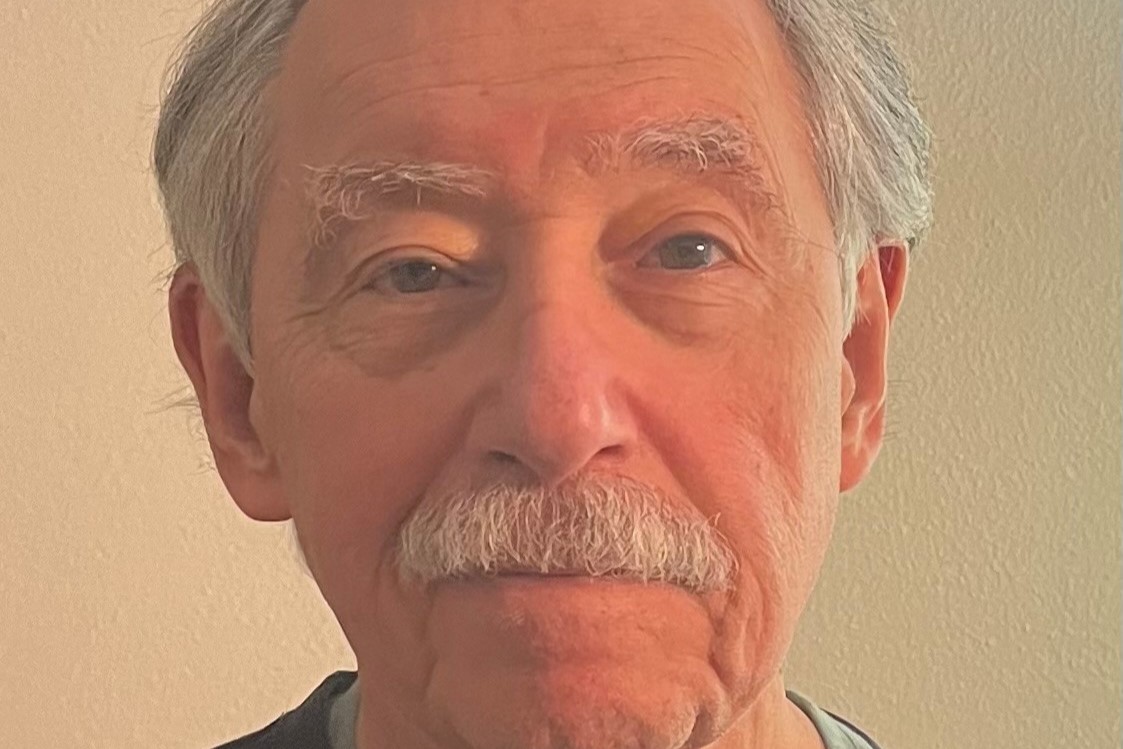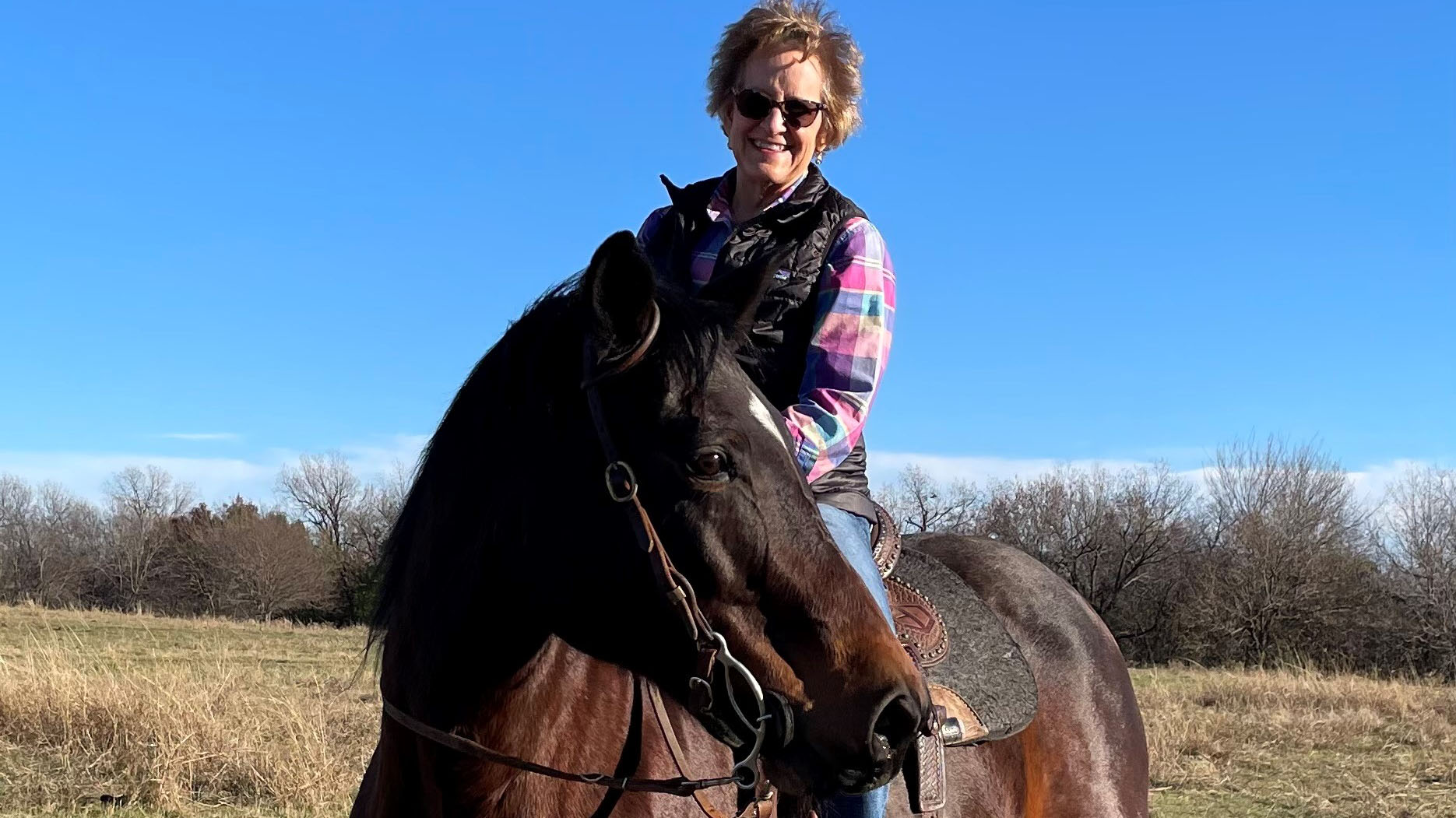- Diseases
- Acoustic Neuroma (14)
- Adrenal Gland Tumor (24)
- Anal Cancer (68)
- Anemia (2)
- Appendix Cancer (16)
- Bile Duct Cancer (26)
- Bladder Cancer (72)
- Brain Metastases (28)
- Brain Tumor (232)
- Breast Cancer (714)
- Breast Implant-Associated Anaplastic Large Cell Lymphoma (2)
- Cancer of Unknown Primary (4)
- Carcinoid Tumor (8)
- Cervical Cancer (158)
- Colon Cancer (166)
- Colorectal Cancer (118)
- Endocrine Tumor (4)
- Esophageal Cancer (44)
- Eye Cancer (36)
- Fallopian Tube Cancer (8)
- Germ Cell Tumor (4)
- Gestational Trophoblastic Disease (2)
- Head and Neck Cancer (12)
- Kidney Cancer (128)
- Leukemia (342)
- Liver Cancer (50)
- Lung Cancer (286)
- Lymphoma (278)
- Mesothelioma (14)
- Metastasis (30)
- Multiple Myeloma (100)
- Myelodysplastic Syndrome (60)
- Myeloproliferative Neoplasm (6)
- Neuroendocrine Tumors (16)
- Oral Cancer (100)
- Ovarian Cancer (172)
- Pancreatic Cancer (160)
- Parathyroid Disease (2)
- Penile Cancer (14)
- Pituitary Tumor (6)
- Prostate Cancer (146)
- Rectal Cancer (58)
- Renal Medullary Carcinoma (6)
- Salivary Gland Cancer (14)
- Sarcoma (238)
- Skin Cancer (296)
- Skull Base Tumors (56)
- Spinal Tumor (12)
- Stomach Cancer (64)
- Testicular Cancer (28)
- Throat Cancer (92)
- Thymoma (6)
- Thyroid Cancer (98)
- Tonsil Cancer (30)
- Uterine Cancer (80)
- Vaginal Cancer (16)
- Vulvar Cancer (20)
- Cancer Topic
- Adolescent and Young Adult Cancer Issues (20)
- Advance Care Planning (10)
- Biostatistics (2)
- Blood Donation (18)
- Bone Health (8)
- COVID-19 (362)
- Cancer Recurrence (120)
- Childhood Cancer Issues (120)
- Clinical Trials (632)
- Complementary Integrative Medicine (22)
- Cytogenetics (2)
- DNA Methylation (4)
- Diagnosis (232)
- Epigenetics (6)
- Fertility (62)
- Follow-up Guidelines (2)
- Health Disparities (14)
- Hereditary Cancer Syndromes (126)
- Immunology (18)
- Li-Fraumeni Syndrome (8)
- Mental Health (116)
- Molecular Diagnostics (8)
- Pain Management (62)
- Palliative Care (8)
- Pathology (10)
- Physical Therapy (18)
- Pregnancy (18)
- Prevention (918)
- Research (392)
- Second Opinion (74)
- Sexuality (16)
- Side Effects (604)
- Sleep Disorders (10)
- Stem Cell Transplantation Cellular Therapy (216)
- Support (402)
- Survivorship (322)
- Symptoms (182)
- Treatment (1786)
Brain mass survivor on MD Anderson: ‘You’re in the best hands'
4 minute read | Published October 16, 2023
Medically Reviewed | Last reviewed by an MD Anderson Cancer Center medical professional on October 16, 2023
“I never dreamed that I would have a mass in my skull,” says Curry Kennerly.
Today, the father and grandfather who inspects new construction in the growing Houston area is busy at work and with his family again. But just a few months ago, he had brain surgery at MD Anderson.
Doctors thought he had a brain tumor. “I was having dizzy spells pretty often,” says Curry, 47. “I was just trying to push through.” One day at work, he nearly fainted. That’s when he knew he had to get checked out. He went to a local hospital, where a CT scan revealed a mass in his brain.
“They said something about it looking like a cancerous mass,” recalls Curry of the CT results. The doctor thought Curry needed surgery and recommended MD Anderson. “Everyone was telling me that’s the best place to go have brain surgery,” he remembers.
Skilled neurosurgeon successfully removes a benign brain tumor
At MD Anderson, Curry met Sherise Ferguson, M.D., a neurosurgeon who specializes in primary and metastatic brain tumors. “She’s very relatable,” Curry says of Ferguson. “She is confident and makes you feel like you’re in the best hands ever. She gives her all to this.”
Ferguson removed the mass from Curry’s brain in May 2023, performing surgery in MD Anderson’s BrainSuite. The BrainSuite has an intraoperative MRI, which allows doctors to perform a brain MRI during certain operations. This helps them remove as much of a tumor as possible.
After Ferguson removed the mass and reviewed it with the Pathology team, she had good news. Curry remembers the moment she came into his room: “She said, ‘I’m not used to being able to come in and tell you it was benign, but it was, in fact, benign!’”
That meant the mass wasn’t cancerous; it was a very large epidermoid cyst stretching across both frontal lobes of his brain. “A few medical personnel said I may have had this since I was born,” says Curry. Epidermoid cysts usually occur in younger people, and it was unusual for Curry to have no symptoms until the age of 47. Says Curry of the experience: “It has been a ride!”
Brain tumor triggers stress – and brings family closer together
Before his diagnosis, Curry had balanced work and a busy family life with his wife, Tiffany. The high school sweethearts have four children, two grandchildren and a large extended family. Their youngest daughter, Sarah, 13, has Down syndrome.
“I was going through a tough time trying to do my schedule and arrange for Sarah to be taken care of,” he remembers.
The brain tumor symptoms made the stress worse. Before the surgery, Curry says, “The pressure on my brain was so bad that I couldn't function very well.” It triggered anxiety, and activity and loud noises made it worse. “I couldn’t handle being in the room with the TV loud or anything; I had to retreat to my bedroom and shut the door.”
He and Tiffany agreed that he should stay temporarily with his mother, Cindy, in Lufkin, Texas. “My mom offered a safe place away from it all.” For almost two months, his mother picked up his medications and drove Curry to events like his grandson’s birthday party. “My mom was very instrumental,” says Curry. “She stayed with me when my wife couldn’t because she had to be home with Sarah.”
For most people, a potentially cancerous brain mass would only add to the strain. But the diagnosis and surgery brought Curry, his family and his community closer together. “You’d think it would cause more stress, but I think it caused everybody to have compassion for me and to love on me,” he says.
Gratitude for faith, family and MD Anderson’s expertise
Facing surgery, the possibility of cancer and being out of work for a few months, Curry relied on his family and his faith for support. His church even set up a fundraiser. “We depend on my income,” he says, but thanks to community support, his family remained secure. “Everybody chipped in,” adds Curry, whose family, friends and their churches also called for prayers on his behalf. He says, “I felt like God was taking care of me through this.”
Even though he didn’t have cancer, Curry still needed time to recover from his big operation. He spent a week in the hospital after surgery, and his stitches were removed two weeks after surgery. He had to avoid heavy lifting for several weeks, so he couldn’t help with tasks like grocery shopping. He managed pain and swelling with common over-the-counter and prescription medications. He had physical therapy twice a week, which, Curry says, helped him build his strength back up. Fortunately, his family was by his side for his recovery.
Back home after surgery, Curry relied on Tiffany for help with his medications and daily tasks. Tiffany works as a school nurse, so she had more time during the summer to help in his recovery. Curry’s children also helped with household tasks once he returned home. “My kids have really stepped up,” Curry says. “I came home, and they all helped me."
Now, Curry is back at work and says he’s “pretty close to getting fully healed.”
Of his experience at MD Anderson, Curry says, “You’re in the best hands. I would definitely recommend Dr. Ferguson, and I would definitely recommend MD Anderson.”
Request an appointment at MD Anderson online or by calling 1-855-776-1559.
Related Cancerwise Stories
